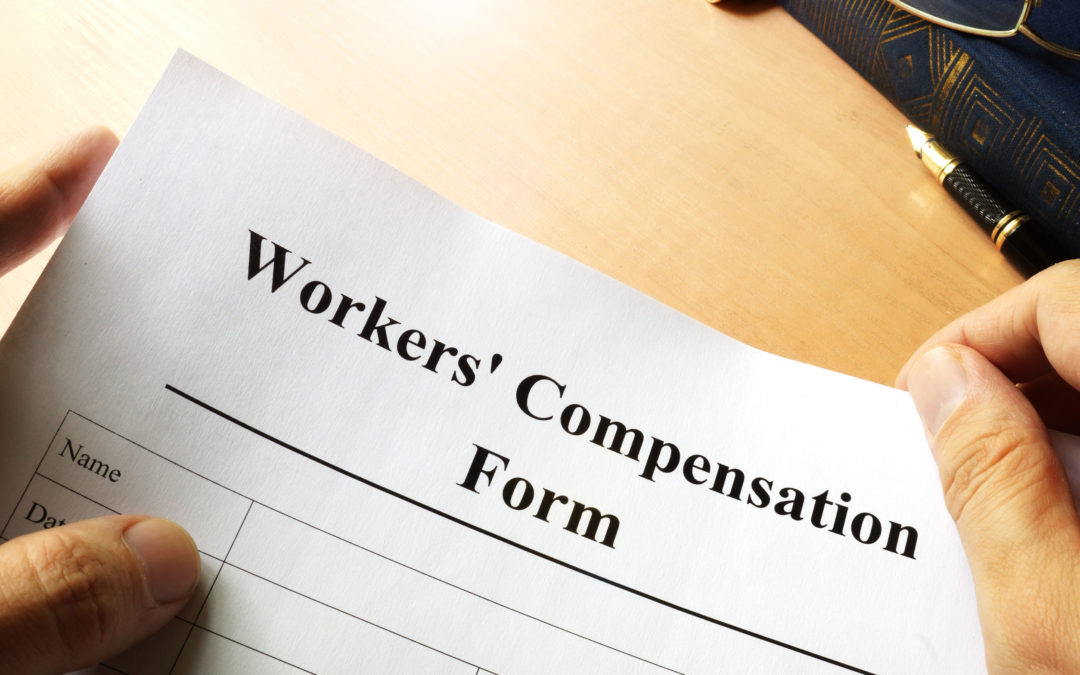
by admin
Many small business owners might put taxes on the backseat of their time and attention until IRS deadlines loom on the horizon.
That makes sense given most small business owners focus their attention on tasks like customer acquisition, servicing customers, balancing books, ordering products, managing employees—you know, those day-to-day business tasks.
However, taxes shouldn’t be a last-minute task. That last-minute rush to handle taxes can lead to failure to comply with tax laws, violating tax codes, or filling out forms incorrectly.
Incorrectly filing your small business taxes can open the door to possible IRS penalties.
That’s why the IRS recommends that small business owners consider using a professional tax preparer.
Below, we’ve gathered common mistakes small business owners make on their taxes.
Frequently Asked Questions about Four Common Tax Errors Made by Small Businesses
What Happens if a Small Business Underpays Estimated Taxes?
If small business owners expect to owe more than $1,000 in taxes when their return is filed, they should make estimated tax payments. Small business owners who don’t pay enough taxes through withholding and estimated tax payments may be charged a penalty.
What Happens if a Small Business Doesn’t Deposit Employment Taxes?
The IRS expects small business owners to deposit taxes they withhold plus the employer’s share of those taxes through electronic fund transfers. If a small business fails to deposit these funds correctly and on time they may be susceptible to an IRS penalty.
What Happens When a Small Business is Late Filing Taxes?
The IRS wants small business tax returns to be filed on time—just like individual returns. A small business owner or their tax professional should be aware of all tax requirements for the business and filing deadlines. Failure to make timely tax filings can incur late filing penalties for small businesses.
What Happens if a Small Business Owner Doesn’t Separate Business and Personal Expenses?
Many tax experts highly recommend separating business and personal expenses. This helps to organize legitimate business expenses from personal expenses. While the IRS doesn’t penalize small businesses for this, doing so can cause a business to make errors when claiming deductions. If those errors are found during a tax audit it may open the business up for penalties.
Consider Delegating Your Tasks to Business Solutions Unlimited
If you’re placing taxes on the back burner because of your other small business tasks, consider delegating. We understand your time is valuable and can help take some things off your plate.
If you’d like to explore the benefits of using a Virtual Assistant Firm, give us a call at (904) 429-4588 to see how we can help your business today.

by admin
In 2020, successful small businesses will be optimizing their Google My Business listing to increase their visibility, attract more customers, and push aside local competitors.
In recent years, Google has optimized its search page to help its searchers find what they need without clicking to a website. Today, more than 64% of customers have used Google My Business listings to find a business address, phone number, information, and directions.
Businesses that have optimized their online presence for Google’s Zero-click searches are well-positioned to get more customers.
One way to stand out with your Google My Business listing is simply to add more photos.
We’ll share details about this optimization tactic below.
However, if you’re thinking “wow, another task I’ve got to add to my busy day!” we’d like to come to your rescue.
Delegate That Task to Business Solutions Unlimited
Business Solutions Unlimited can help you to optimize your Google My Business listing plus make sure your online presence truly reflects the benefits customers gain by choosing your business.
Give us a call at (904) 429-4588 and let us get started helping you today.
How More Google My Business Photos May Make a Difference in Your Business
In the last half of 2019, research conducted by BrightLocal uncovered compelling data that the quantity of photos on a Google My Business listing may make a significant difference in the behaviors of online searchers and Google’s search results.
When compared with average business listings, the research found that businesses with more than 100 images got:
- 520% more calls
- 2,717% more direction requests
- 1,065% more website clicks
The research also found correlating data that a business listing with more than 100 images gets 713% more discovery searches in Google than the average business listing.
According to Google, a discovery search occurs when a customer searches a category, product, or service that you offer and your listing appears.
How in the World Do You Get More than 100 Photos for Your Google My Business Listing?
While adding 100 photos to your Google My Business listing may seem like a herculean task, the research shows it may have a significant impact on your business.
Google already suggests that businesses add the following photos to their Google My Business listing:
- 3 exterior photos
- 3 interior photos
- 3 product photos
- 3 work-related photos
- 3 food & drink photos if relevant
- 1 common area photo
- 3 room photos if a hotel or vacation rental
- 3 team photos
With a little effort, you can add the number of photos to that list:
- Restaurants can add food and drink photos from their entire menu
- Vacation rentals can add more rooms, unique views, special room features, etc.
- Service-oriented businesses can add photos of projects completed at a customer’s home
- Attorneys could hold monthly educational events and take photos of attending participants (with their permission)
Also, encourage customers to take and post photos for you. Offer a free appetizer on a return visit if a customer posts photos of their dinner at a restaurant. Consider creating a picturesque spot where customers can take selfies.
From adding photos to adding FAQs, Google is making Google My Business a comprehensive and robust business center for local searches.
For 2020, we recommend that businesses make optimizing their Google My Business listing a priority.
Do You Have Time to Optimize Your Google My Business Listing?
If you don’t, we do.
That’s why we’re here.
Give Business Solutions Unlimited a call at (904) 429-4588 to explore ways we can help your business today.
Frequently Asked Questions About Google My Business Photos
What are the requirements for photos uploaded to Google My Business listings?
Google requires the following standards for your photos to look their best in your Google My Business listing:
- Format: JPG or PNG
- Size: Between 10 KB to 5 MB
- Minimum Resolution: 720 px tall x 720 px wide
- Quality: Photos should represent the reality of your business and be focused and well lit. Photos should have no significant alterations or excessive use of filters.
What criteria does Google have for photos uploaded to Google My Business listings?
Google asks that photos uploaded to Google My Business listings be relevant to the business and its location. Basically, they want actual photos of your products, services, staff, and locations to help searchers have a realistic view of your business. They state that the use of stock imagery is not relevant and may be removed.
Can you have text or a logo on photos uploaded to Google My Business listings?
Google states that text or graphics superimposed on photos uploaded to Google My Business listing be relevant to the business. Text and graphics cannot take up more than 10% of the image.

by admin
How would you like to increase the online presence of your business with a free webpage?
Yes, that’s a free webpage to showcase your branding, message, products, and services—all courtesy of Google.
Launched in 2017, Google’s Website Builder provides businesses that have a Google My Business (GMB) listing an opportunity to create a single page webpage in three simple steps:
- Create: Business details and images automatically pulled from your GMB listing
- Edit: Customize your page with themes, colors, and content
- Publish: With or without a custom domain name
Google walks you through each step and many businesses could publish their free website within 10 minutes.
Look below for additional information on Google’s Website Builder and how your business could use it to increase your online presence.
However, if you’re thinking “wow, another task I’ve got to add to my busy day!” we’d like to come to your rescue.
Business Solutions Unlimited can help create not just your GMB webpage, but make sure your online presence truly reflects the benefits customers gain by choosing your business.
Give us a call at (904) 429-4588 and let’s see how we can help your business today.
Frequently Asked Questions and Details About Google’s Website Builder
What Types of Businesses Could Benefit from a Google My Business Website
Any business with a Google My Business listing can use Google’s Website Builder and should do so. Why? Well, it’s free. It’s also provided by Google, which gives it a bit of an online boost for your online presence.
Google is constantly looking for details about your business to present to searchers and this webpage would add to your overall online presence.
Can a Google Website Replace a Business’ Stand-alone Website?
Since Google’s Website is a single page, it would be a challenge for most businesses to use to fully communicate your business’s details.
Savvy businesses consider their website as a hub of online presence and will use Google’s free webpage as a component in their overall online presence.
Businesses can provide links to their stand-alone website on Google’s webpage.
What Content Can Be Put on a Google Website?
A Google My Business website is divided into zones of content and pulls much of it from a business’s GMB listing. The site is divided into:
- Navigation
- Header: Business name and description
- Banner Image
- Updates from GMB posts
- Testimonials pulled from the GMB listing
- About Us: A summary of your business, products, and services
- Gallery of Images: Pulled from GMB
- Contact Info: Map, Contact Number, Address, Hours, etc.
Can a Google Website be Mobile Friendly?
Google My Business website is optimized for mobile. In fact, you can manage the site straight from your phone.
Do You Have Time to Optimize Your Google My Business Listing?
If you don’t, we do.
That’s why we’re here.
Give Business Solutions Unlimited a call at (904) 429-4588 to explore the ways we can help you with your business today.

by admin
The U.S. Department of Labor (DOL) announced a final rule to the Fair Labor Standards Act (FLSA) that takes effect on January 15, 2020.
The FLSA final rule clarifies what benefits and items should be included in an employee’s regular rate of pay to calculate overtime pay.
The final rule addresses certain confusions businesses may have regarding what to include in the regular rate of pay. In many cases, this confusion and fear of litigation risks impacted an employer’s decision to offer competitive benefits.
These clarifications may help businesses choose to offer additional employee perks and benefits without concern of adding to the cost of the regular pay calculations.
Since this is the first time in 50 years that the DOL has updated its FLSA definitions, businesses should consider conducting a regular rate audit. This may be a good opportunity to determine if the business if following FLSA requirements and if there is room for providing new employee perks.
Below, we’ve provided highlights on the FLSA final rule.
Frequently Asked Questions about Employee Regular Rate of Pay and Overtime Pay
What Employees Can Receive Overtime Pay in 2020?
According to the Fair Labor Standards Act (FLSA), only non-exempt employees are eligible for overtime pay. The act requires employers to pay employees at least the federal minimum wage ($7.75) for up to 40 hours a week. Employees should receive a pay rate of 1.5 times their regular pay for hours worked over the 40 regular hours.
It’s important to note that many states have their own minimum wage requirements.
What is an Employee’s Regular Rate of Pay?
The employee’s regular rate of pay is determined by calculating their regular hourly rate and additional compensations received during the workweek.
What Should Businesses Include in an Employee’s Regular Rate of Pay in 2020?
According to the U.S. Department of Labor, businesses should define their employee’s regular rate as “all remuneration for employment paid to, or on behalf of the employee, subject to several categories of exclusion.”
Remuneration may include the following:
- Hourly wage
- Nondiscretionary bonuses (including commissions)
- Production bonuses
- Cost of living adjustments
- Shift premiums
- Retroactive pay
- Noncash compensation
What Can Businesses Exclude in an Employee’s Regular Rate of Pay in 2020?
Businesses may exclude the following compensation categories from an employee’s regular rate of pay:
- Discretionary bonuses
- Perks including parking benefits, wellness programs, gym access, employee discounts, etc.
- Certain sign-on and longevity bonuses
- Paid time off including vacation, holiday and sick time pay
- Payments for unused paid leave
- Business expense reimbursement including cellphone plans, membership dues, certain travel expenses, etc.
- Contributions to benefit plans for accident, unemployment, legal services or other events that could cause future financial hardship or expense
- Gifts including office coffee, snacks, etc.
- Premium payments for work performed outside regular work hours
- Extra compensation paid through an agreement between employer and employee
- Income from grants or options
Consider Delegating Your Tasks to Business Solutions Unlimited
As a business owner or manager, your time is valuable. Not only must you run a business but it’s imperative to keep up with the latest regulations regarding employee compensation and other items.
Let Business Solutions Unlimited take some tasks off your plate.
If you’d like to explore the benefits of using a virtual assistant firm, give us a call at (904) 429-4588 and let’s discuss how we can help your business.

by admin
Over the last couple of years, many states have decreased rates for workers’ compensation.
Here is a snapshot of just some of the states announcing decreased rates this year.
In December, Florida announced rates would be cut in 2020 by an average of 7.5%.
Delaware decreased an average of 12.55%.
Tennessee dropped rates by an average 7.1%.
Oklahoma cut rates by an average of 5%.
Oregon decreased rates by an average of 8.4%.
Montana cut premium rates by 8.6%.
Louisiana announced rates would drop by 8.4% by May 2020.
New Hampshire rates declined by 9.6%.
Decreased workers’ compensation rates mean a reduction in operating costs for businesses. As this trend continues, it may provide an opportunity for businesses to expand and hire new employees.
Since many states are modifying their workers’ compensation insurance rates, it’s important to conduct a yearly review of your policy.
Frequently Asked Questions about Workers’ Compensation Insurance
We’re often asked questions about workers’ compensation insurance by the small businesses we support. Below, we’ve compiled a list of common questions and answers about workers’ comp.
What is Workers’ Compensation Insurance?
Workers’ compensation provides employees medical and wage benefits if they are injured or become ill within the scope of their employment duties. Workers’ comp offers 5 basic benefits:
- Medical Care
- Temporary disability benefits
- Permanent disability benefits
- Supplemental job displacement benefits
- Death benefits
Who is Covered by Workers’ Compensation Insurance?
Workers’ comp protects employees of a business. Additionally, businesses are generally covered against lawsuit costs brought by employees injured on the job.
Where Do You Get Workers’ Compensation Insurance?
If allowed by the state you conduct business in, workers’ compensation insurance can be purchased through private insurance companies. In some states, workers’ comp can be purchased through a state fund.
Do All Small Businesses Need Workers’ Compensation Insurance?
Every state except Texas requires small businesses to have workers ‘compensation insurance if they meet the requirement as specified in the state they do business in.
For example, in Florida, a business must carry workers’ compensation insurance if they have more than four full-time or part-time employees. However, certain industries, like construction, must carry workers’ comp regardless of the number of employees.
Do Small Business Owners Need Workers’ Compensation Insurance Coverage?
In general, sole proprietors and partnerships do not require workers’ compensation insurance unless they have employees. Business owners can, if they choose, be covered by workers comp.
How Can a Small Business Be Exempt from Carrying Workers’ Compensation Insurance?
If a business does not exceed the number of employees required by the state to carry workers’ compensation insurance, they can file an exemption with the state. This requires an officer of the business to register the business as exempt.
Is there a Federal Workers’ Compensation Insurance?
The federal government provides its own workers’ compensation program covering federal employees and civilian contractors working for the federal government.
While small businesses are generally exempt from getting federal workers’ compensation insurance, some industries might require insurance.
For example, the Longshore and Harbor Workers’ Compensation Act (USL&H) requires employers of maritime workers to carry workers’ comp and USL&H coverage.
Consider Delegating Your Tasks to Business Solutions Unlimited
Do you have the time or staff necessary to find the right workers’ compensation insurance carrier for your business? If not, a virtual assistant firm like Business Solutions Unlimited can help.
If you’d like to explore the benefits of using a virtual assistant firm, give us a call at (904) 429-4588 to discuss the many ways we can help your business.
Page 1 of 1112345...10...»Last » 




